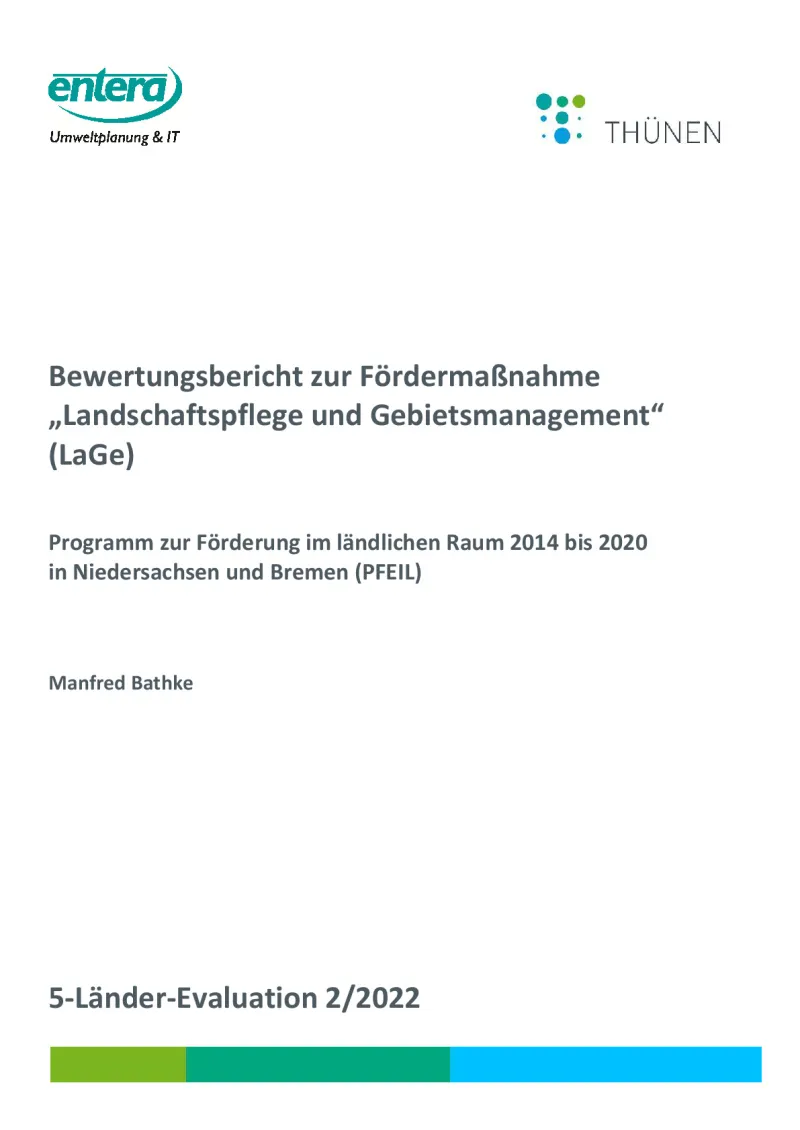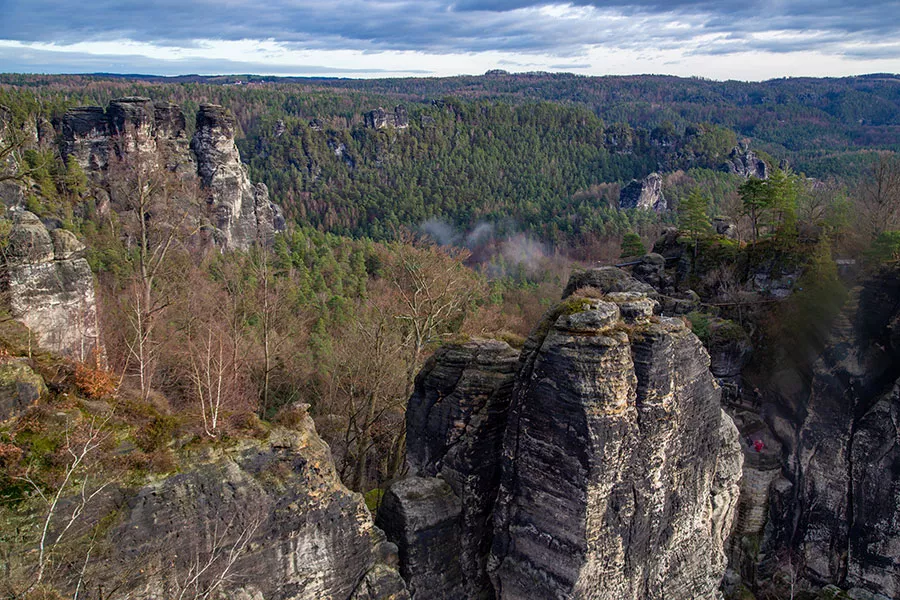Evaluation report on the RDP measure for landscape and territorial management
The report summarises the results in relation to the funding measure 'landscape management and territorial management' in Lower Saxony, Germany.
- Germany
- 2014-2022
- Environmental impacts


In the framework of the Rural Development Programme (RDP) from 2014 to 2020, the report summarises the results in relation to the funding measure 'landscape management and territorial management' (LaGe).
For the selected case study projects, the funding data and the annual progress reports were evaluated. The latter gives an overview of the activities of a year and usually also contains minutes of cooperation meetings.
The funded projects are very different in terms of their objectives and cover the area of pure advice to land users, on-site care of protected areas and the establishment of overarching regional cooperation.
Many of the cooperation and communication tasks implemented in the projects could be regarded as core areas of work of the Lower Nature Conservation Authorities (UNB). However, there are not sufficient human resources available for more intensive cooperation. On the contrary, the LaGe funding brings about a significant intensification of cooperation between nature conservation and agriculture and thus supports the UNBs.
In all the projects considered, the cooperation has proved very successful and there is or was a desire for a continuation and the establishment of permanent cooperation structures. Accordingly, applications were submitted in the second half of 2021 from numerous LaGe projects for the establishment of ecological stations within the framework of Lower Saxony.
The support measure also serves to improve the implementation of conservation and development measures in Natura 2000 areas and contributes to improved acceptance of the agricultural world and climate action.
The recommendations for the future promotion of nature conservation cooperation can be summarised as follows:
• Focus on projects that serve to establish permanent and sustainable cooperation structures and also take into account the ‘normal agricultural landscape’ (also not relevant for Bremen, as the relevant areas are predominantly designated as EU bird protection areas and are subject to protection status).
• Organise exchanges of information between projects.
• Establish a coordination point as a contact person for all open questions;
• In addition to personnel costs, approve additional project funds at short notice for demonstration projects and projects to be implemented;
• Provide longer-term protection for project work as far as possible and ensure no funding gaps when transitioning to the next funding period - if necessary, provide interim financing with state funds to avoid personnel changes.
• Include staff costs for an administrative specialist.
Overall, the evaluators highlight a strong need for support in the establishment of overarching cooperation between agriculture, environmental protection and municipalities. In this context, the principle of third parity, as advocated, for example, by landscape associations, is an important basis for successful and long-term stable cooperation. The future funding period offers the opportunity to support the establishment of such cooperation.
Author(s)
Manfred Bathke - Thunen Institute